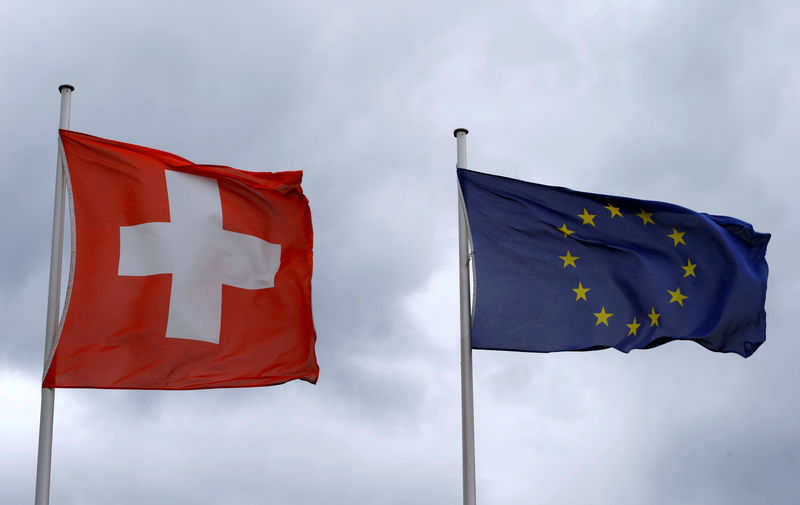ZURICH (Reuters) - Switzerland hopes a tit-for-tat battle with the EU over stock market access will be short-lived as the two sides try to hammer out a deal over a stalled draft partnership treaty, its foreign minister said on Thursday.
Frustrated with Swiss foot-dragging on signing the pact negotiated over 4-1/2 years, the European Commission is effectively banning EU-based banks and brokers from trading shares directly on Swiss bourses from July 1.
The Swiss will retaliate with a decree banning EU bourses from hosting Swiss equities trading, with the exception of some stocks already listed both in Switzerland and on EU exchanges.
"We hope this is just a temporary solution," Swiss Foreign Minister Ignazio Cassis told Swiss broadcaster SRF in an interview, saying the diplomatic spat with Switzerland's biggest trading partner had arisen from a series of misunderstandings.
"In the European Union one has the feeling that we are playing for time. We in Switzerland know we are not playing for time, we need time because we have a different political structure and we cannot simply decide in the government and that's it," he said.
He was referring to the Swiss system of consensus-building between politicians, labour unions, industry bodies and other power brokers and its direct democracy in which voters get a final say on all important matters.
The treaty would have Switzerland routinely adopt changes to EU single market rules, create a more effective platform to resolve disputes, and open a path to new trade deals such as an electricity union.
But with Swiss parliamentary elections due in October, it has become entangled in domestic politics. Those opposed to the accord range from the right-wing Swiss People's Party (SVP) to the centre-left Social Democrats (SP) and allied labour unions.
Those two parties are the biggest in parliament and have four of the seven cabinet seats.
The anti-EU SVP resents giving Brussels any say in Swiss affairs, while the left is against diluting Swiss labour rules meant to protect Europe's highest wages from cut-rate EU workers on temporary cross-border assignments.
"We really have to create together with the social partners a majority so that people can be satisfied with this," Cassis said, referring to employers and labour unions.
He noted that treaty talks arose from the EU's problems with Swiss rules to protect Swiss pay, a topic that Switzerland had originally said was non-negotiable.

"We have to at least try to talk about it and see which possibilities exist," Cassis said.